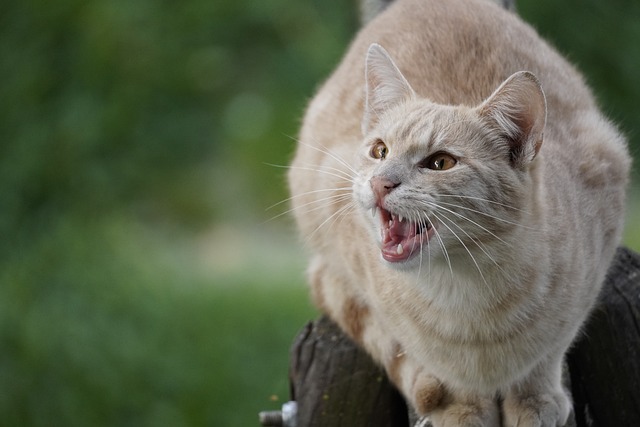
Like people, cats can have oral health problems like rotting teeth. Periodontal disease and/or feline tooth resorption are two conditions that can bring your pet cat a lot of pain. Early detection of the symptoms and regular dental care practices can stop the progression of pain.
But how do you determine if your cat has bad teeth? Here is what to watch for:
Change in Eating Habits
A change in a cat’s food habits is one of the most obvious symptoms of dental issues. A cat will rarely refuse to eat due to dental issues, but one that is in pain may quit eating dry food, prefer softer food, or act reluctantly while eating. Additionally, they might eat more slowly, spit food out of their mouths, or approach the food dish but pause or turn away before beginning to eat.
Bad Breath
Halitosis, or bad breath, is not only unpleasant but can also be a sign of dental illness. While a slight mouth odor is typical for cats, an unusually nasty or putrid scent may indicate an oral health problem, such as decayed teeth.
Behavioral Changes
The ability to mask discomfort is a skill that cats have inherited from their wild ancestors, who had to do so to survive. But tiny behavioral adjustments can let you know when they are uncomfortable. If a cat has dental problems, they could become more reclusive, act aggressively when their faces are stroked, or stop grooming themselves, which can leave their coat looking scruffy. Drooling excessively, pawing at the mouth, or face rubbing are all warning signs of oral discomfort.
Visible Signs
Take time to examine your cat’s mouth for any obvious indications of dental issues while you are giving it a regular petting. Gently lift their lips to reveal the gums and teeth. Healthy feline gums are pink, while inflamed or red gums, especially around the tooth line, may indicate dental disease. A veterinary dentist who has attained board certification should be consulted if your pet has brownish or discolored teeth, noticeable tartar accumulation, or a tooth that is obviously fractured or missing.
Weight Loss
If a cat has had oral discomfort for a while, this might lead to weight loss. Dental pain can make it difficult for a cat to eat or chew food properly, leading to reduced food intake and weight loss. If your cat is losing weight without any diet or physical activity changes, it might be worth investigating their oral health.
Remember, these signs are not definitive proof of rotten teeth but are indicators that there might be an underlying dental issue. Always consult with a professional veterinarian for an accurate diagnosis.
Preventing dental disease starts with good oral hygiene. Regular brushing of your cat’s teeth can reduce the accumulation of plaque and tartar that lead to tooth decay and gum disease. Providing dental health-specific cat food or treats can also help maintain a clean oral environment. Lastly, regular veterinary check-ups, including dental examinations, are vital in dealing with potential issues early.
Don’t give up if you think your cat may have bad teeth. Professional dental cleanings and, if necessary, tooth extractions are only a few of the treatment options accessible. Your cat can continue eating comfortably, purring, and generally being well with fast and efficient treatment.
In conclusion, the oral health of your cat is just as crucial to its general wellbeing. Your furry friend’s quality of life and lifespan can be improved by keeping a set of healthy teeth by being vigilant and proactive. A happy cat with a healthy mouth is a pleasure to behold, and you will enjoy hearing their joyful purrs.
